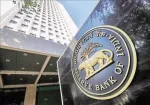Key Points
Sikh pilgrims arrive for 326th Baisakhi Mela
Over 20,000 expected to attend celebrations
Security measures deployed across multiple districts
Traditional harvest festival maintains cultural significance
Observed annually on April 13, and sometimes on April 14, the festival remains deeply rooted in cultural fabric of rural Punjab, straddling both sides of the India-Pakistan border.
For farmers, it signifies the end of months of crop-watching and the joyous beginning of the harvest season, a day when hard work yields its long-awaited reward, the News reported.
Before the Partition, Baisakhi festivals were vibrant festivals steeped in folk tradition and farmers gathering to dholak beats, kick-starting the harvest, with menfolk performing the bhangra in the fields, while the women sang tapay and mahiye.
Now, mechanisation has altered the customs, with combine harvesters and threshers replacing the communal harvest, and has drained the day of its vibrancy, the News said.
Baisakhi also holds profound religious significance for the Sikh community, commemorating the founding of the Khalsa by Guru Gobind Singh in 1699.
Post-Partition, the festival became more closely associated with Sikhism, and it is now marked by a special ceremony held at Gurdwara Panja Sahib in Hasan Abdal in Khyber-Pakhtunkhwa province
However, this year, the central celebration is being held at Gurdwara Janam Asthan in Nankana Sahib, the birthplace of Guru Nanak.
Ahead of Baisakhi, the district administration of Nankana Sahib announced school holidays that all educational institutions in the district will remain closed from April 12 to April 16 as thousands of Sikh pilgrims began arriving from India to take part in the Baisakhi celebrations, ARY News had reported.
According to officials, the closure was aimed at ensuring smooth arrangements and tight security during the event.
The main Baisakhi celebration is scheduled for April 14, with preparations already underway.
As part of the security measures, over 2,000 police officers and personnel will be deployed and the District Police Officer issued a detailed security plan for the occasion.
Sikh pilgrims had started arriving in Pakistan from last week to attend the 326th Baisakhi Mela, which begins on April 10 and will continue till April 19.
The mela will host 20,000 local pilgrims, 3,000 from the diaspora and 7,000 pilgrims from India and other countries.
The Punjab Home Department has made comprehensive security measures to ensure the safety of thousands of Sikh pilgrims arriving from around the world for the Baisakhi Festival.
Ahead of the celebrations, the Pakistani High Commission in New Delhi issued more than 6,500 visas to Indian pilgrims, as per Charge d’Affaires Saad Ahmad Warraich.
The Indian pilgrims are visiting several revered gurdwaras across Pakistan, including Gurdwara Panja Sahib, Gurdwara Kartarpur Sahib, and Gurdwara Nankana Sahib.
These visits are facilitated under the Pakistan-India Protocol on Visits to Religious Shrines of 1974, which allows cross-border travel for religious purposes.
Leave a Comment
Thank you! Your comment has been submitted successfully.







Reader Comments
We welcome thoughtful discussions from our readers. Please keep comments respectful and on-topic.